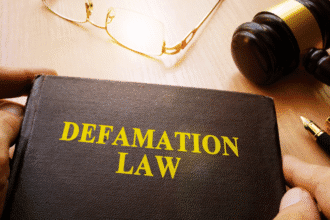This is after the United States deported eight men to South Sudan after a prolonged legal battle on the part of the US to deport them. The male offenders, who were convicted of crimes (murder, sexual assault, and robbery), were either at the end or had finished serving their prison terms. Although one of the men was a South Sudanese, the others were nationals of such countries as Myanmar, Cuba, Vietnam, Laos, and Mexico, which denied them citizenship. The deportations had been carried out after a ruling by the Supreme Court regarding the decision made by another lower court, which had delayed the deportations. The men were relocated to South Sudan, but their destiny there will be uncertain in the volatile country.
Why were these deportations controversial?
The eight convicts had been sentenced for severe crimes, and their deportations had been postponed on legal appeals. At first, they were to be deported home to their own countries. One of the eight men hailed, however, was South Sudanese, whereas the other men were Myanmar Cubans, Vietnam, and Laos, Mexicans. Most of their home countries had declined to take the deported people, prompting the U.S authorities to consider alternative plans.
Trying to keep the deportation process under control,, l the Trump administration strived to expand the practice of third-country deportation,s, including foundations in El Salvador, Costa Rica, and Rwanda. These were countries that could be used to detain individuals whose deportation could not be directly done to their native countries. Here is the link to our article on the US-Colombia Deportation Resolution
What went on in the Battle of Law?
The deportations were originally subjected to a considerable amount of delays. In May, they were sent out of the U.S. aboard a plane, but this plane was redirected to Djibouti after a U.S. District Court judge, jJudgeBrian Murphy, blocked the deportation. In the judgment of Judge Murphy, the migrants returning to the third countries had to receive a notice and a chance to have a conversation with an asylum officer. This judgment postponed the deportation of the men until the Supreme Court came into the picture.
With a major legal turnaround, the Supreme Court sided with the Trump administration and overruled the decision of the district judge. The decision of the Court facilitated the deportations with the reasoning that migrants no longer had the right to a due process hearing. However, the legal fights became even stronger after the top-binding ruling by the Supreme Court, but the deportations went on.
How was the Reality when Arriving in South Sudan?
On arrival in South Sudan, the men reportedly arrived in good shape. According to Edmund Yakani, a leader of a South Sudanese civil society, the men were confined in a civilian structure under the care of the police and the national security service. According to Yakani, the men were not in handcuffs, and they looked fairly healthy despite the fact that the circumstances surrounding their detention are not as clear at the moment.
South Sudan is one of the countries experiencing instability, and therefore, the U.S. State Department warns of its security risks. The U.S. government has gone ahead to issuetravel advisories regarding the region, citing crime, armed warfare, and kidnapping. The question is still unanswered as to what the immediate future would be for reported people in South Sudan. Here is the link to our article on Tighter Immigration Policies
What are ththenger-term effects of This Decision?
This deportation of these men to South Sudan can be called an important event in the American immigration policy. Tricia McLaughlin, a department spokesperson of the U.S. Department of Homeland Security, had declared the decision a win over what she termed as activist judges. The case has brought awareness of the increased power of the U.S Supreme Court in the policies of deportation, especially regarding due process rights of immigrants being deported to third countries.
Moreover, in the same year, the U.S. Secretary of State Marco Rubio went bonkers and revoked all the permits to travel to the United States issued to users of the South Sudanese passport. This was following the rejection by South Sudan in the past of deported nationals, a fact that added more glitches to the diplomatic relations.
Final Thoughts
The deportation of these men to South Sudan turns out as a breakthrough event in the current struggle of the U.S government to address the issues of immigration and deportation. Although the courtroom fight is over, the state of South Sudan is still under question, and there are still a lot of unresolved issues concerning the future of the men in the country. The case of deportation provides evidence of the intricacies of international deportations and the influence of legal challenges on the deportation policy of immigration. The issue of deportation of these men also brings forth this issue of due process in the decision to deport or not on immigration, especially on the rights of the deported persons,a nd what other countries are involved in accepting the deported persons.








